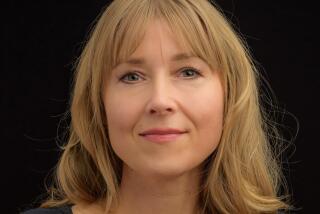Bill Moyers: Who are âwe the peopleâ?
On my 16th birthday in 1950, I went to work for the daily newspaper in the small East Texas town where I grew up. It was a racially divided town â about 20,000 people, half of them white, half of them black â a place where you could grow up well loved, well taught and well churched, and still be unaware of the lives of others merely blocks away. It was nonetheless a good place to be a cub reporter: small enough to navigate but big enough to keep me busy and learning something new every day.
I soon had a stroke of luck. Some of the old-timers in the newsroom were on vacation or out sick, and I got assigned to report on what came to be known as the âHousewivesâ Rebellion.â Fifteen women in town (all white) decided not to pay the Social Security withholding tax for their domestic workers (all black).
They argued that Social Security was unconstitutional, that imposing it was taxation without representation and that â hereâs my favorite part â ârequiring us to collect [the tax] is no different from requiring us to collect the garbage.â They hired a lawyer, went to court â and lost. Social Security was constitutional after all. They held their noses and paid the tax.
YEAR IN REVIEW: 10 tips for a better life from The Timesâ Op-Ed pages in 2013
The stories I helped report were picked up by the Associated Press and circulated nationwide. One day, the managing editor, Spencer Jones, called me over and pointed to the AP ticker beside his desk. Moving across the wire was a notice citing the reporters on our paper for the reporting we had done on the ârebellion.â I was hooked. In one way or another, after a detour through seminary and then into politics and government, Iâve been covering the class war ever since.
Those women in Marshall were among its advance guard. Not bad people â they were regulars at church, their children were my classmates, many of them were active in community affairs, and their husbands were pillars of the business and professional class in town. They were respectable and upstanding citizens all, so it took me a while to figure out what had brought on that spasm of reactionary defiance. It came to me one day, much later: They simply couldnât see beyond their own prerogatives.
Fiercely loyal to their families, to their clubs, charities and congregations â fiercely loyal, in other words, to their own kind â they narrowly defined membership in democracy to include only people like themselves. The black women who washed and ironed their laundry, cooked their familiesâ meals, cleaned their bathrooms, wiped their childrenâs bottoms and made their husbandsâ beds â these women too would grow old and frail, sick and decrepit, lose their husbands and face the ravages of time alone, with nothing to show for their years of labor but the creases on their brows and the knots on their knuckles. Without the safety net made possible by Social Security, they would be on their own. Their employers â the women they worked for â saw none of this as their concern.
In one way or another, this is the oldest story in America: the struggle to determine whether âwe, the peopleâ is a moral compact embedded in a political contract or merely a charade masquerading as piety and manipulated by the powerful and privileged to sustain their way of life at the expense of others.
I should make it clear that I donât harbor any idealized notion of politics and democracy. Nor do I romanticize âthe people.â You should read my mail and posts on right-wing websites. I understand the politician in Texas who said of the state Legislature, âIf you think these guys are bad, you should see their constituents.â
But there is nothing idealized or romantic about the difference between a society whose arrangements roughly serve all its citizens (something otherwise known as social justice) and one whose institutions have been converted into a stupendous fraud. That difference can be the difference between democracy and plutocracy.
Toward the end of Justice William J. Brennanâs tenure on the Supreme Court, he made a speech that went to the heart of the matter. He said:
âWe do not yet have justice, equal and practical, for the poor, for the members of minority groups, for the criminally accused, for the displaced persons of the technological revolution, for alienated youth, for the urban masses.... Ugly inequities continue to mar the face of the nation. We are surely nearer the beginning than the end of the struggle.â
And so we are. One hundred and fifty years ago, Abraham Lincoln stood on the blood-soaked battlefield of Gettysburg and called Americans to âthe great task remaining.â That âunfinished work,â as he named it, remained the same then as it was when Americaâs founding generation began it. And it remains the same today: to breathe new life into the promise of the Declaration of Independence and to assure that the Union so many have sacrificed to save is a union worth saving.
Bill Moyers is host of the weekly public television series âMoyers & Company.â This piece is adapted from a speech he gave at the Brennan Center for Justice. A longer version appears at tomdispatch.com.
More to Read
A cure for the common opinion
Get thought-provoking perspectives with our weekly newsletter.
You may occasionally receive promotional content from the Los Angeles Times.










